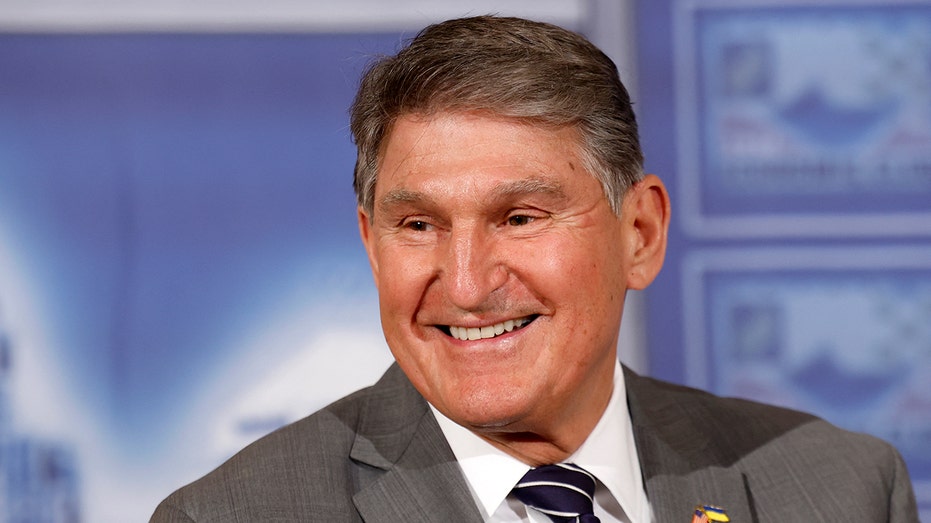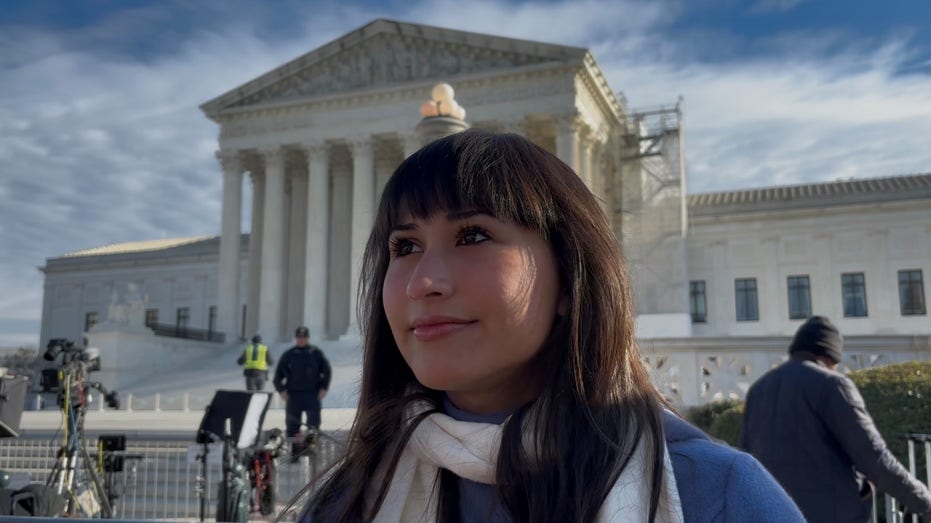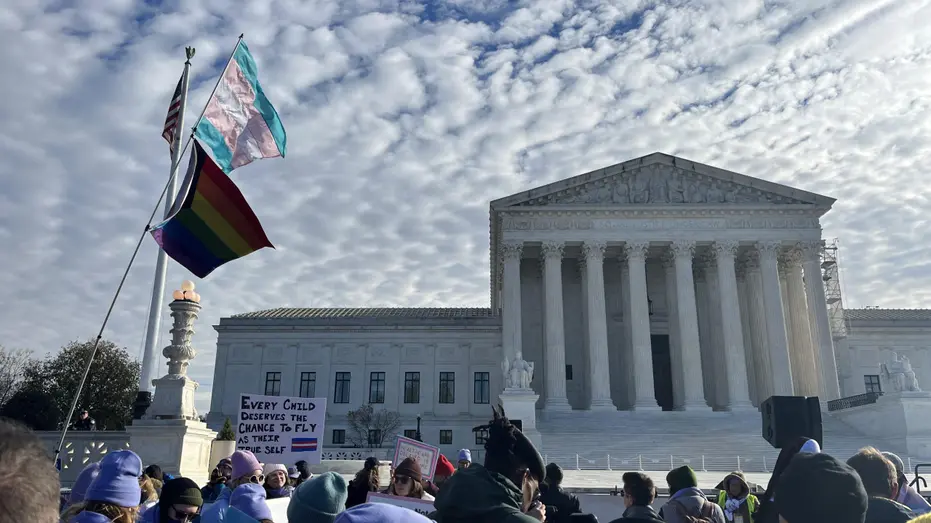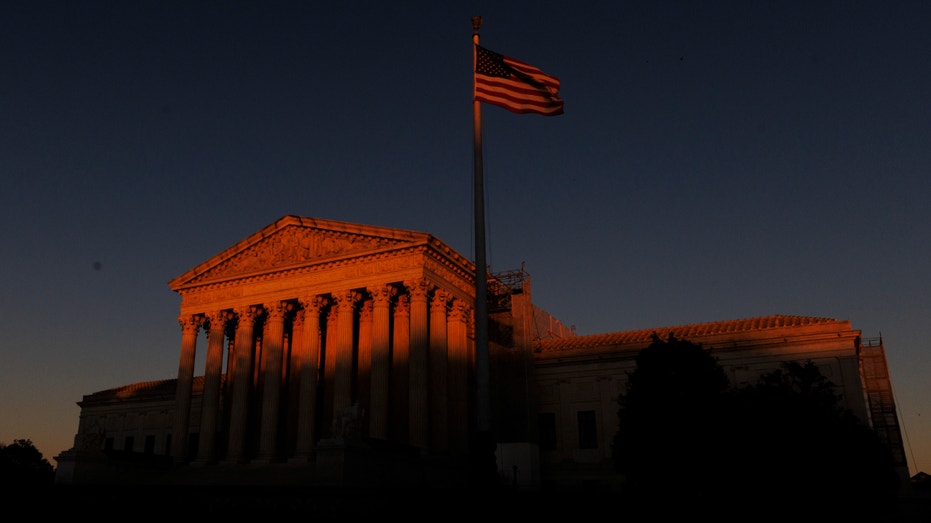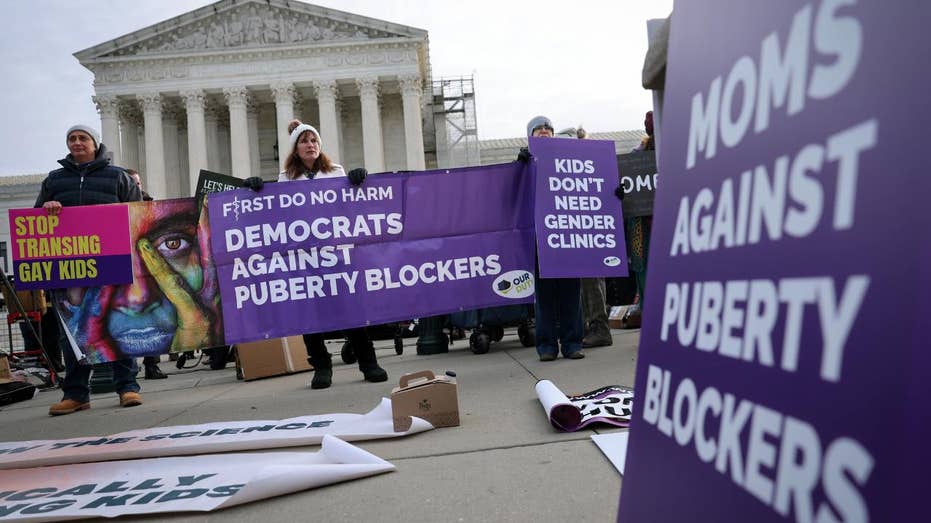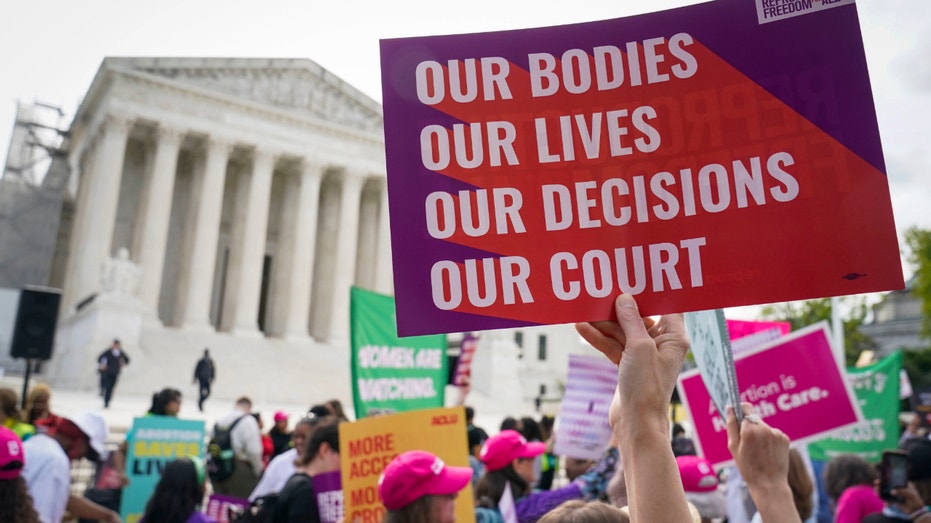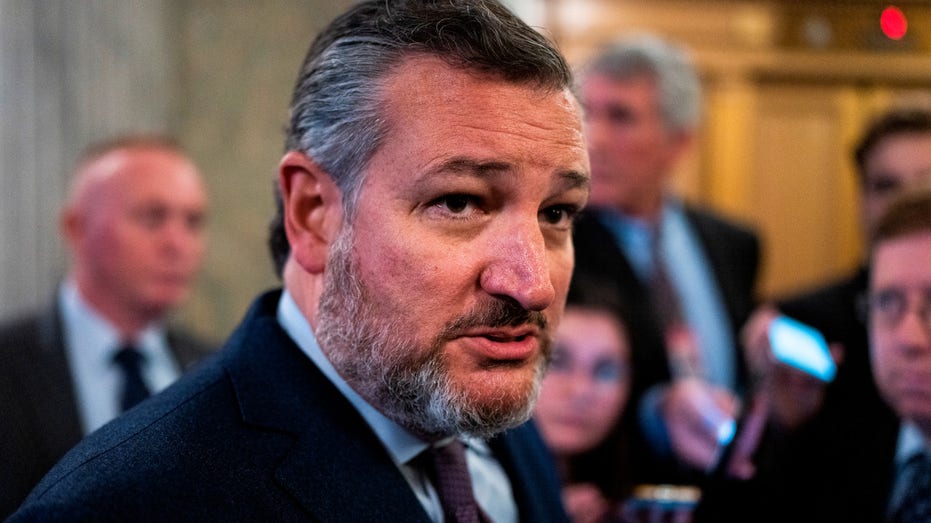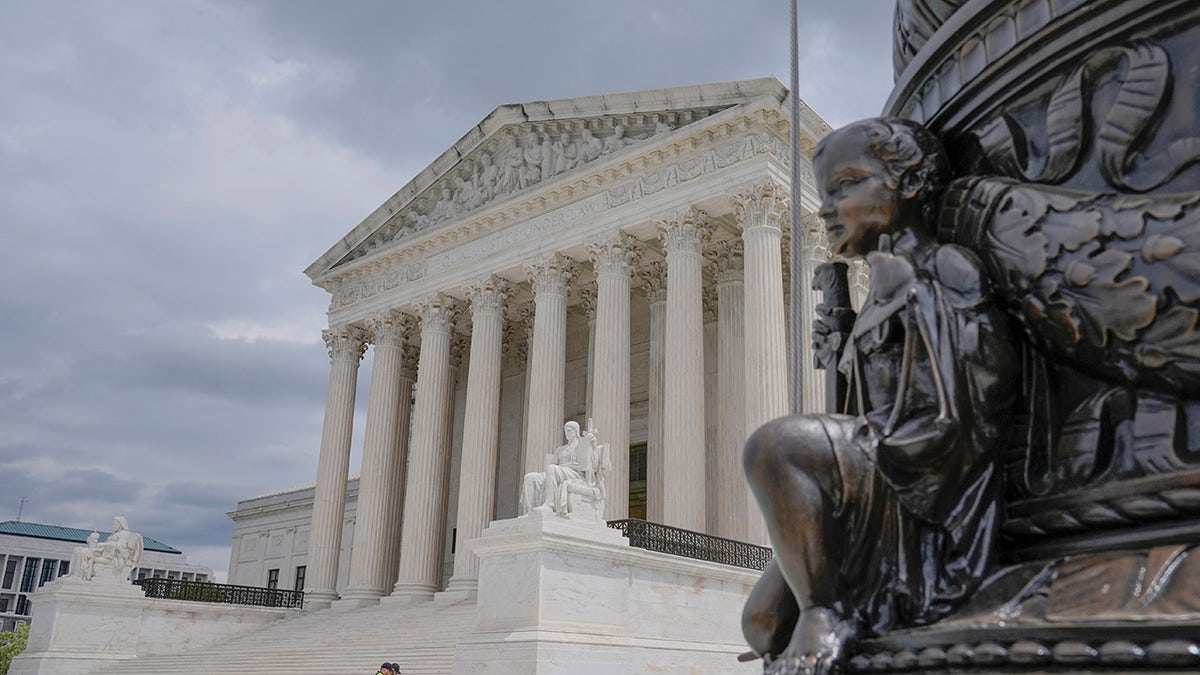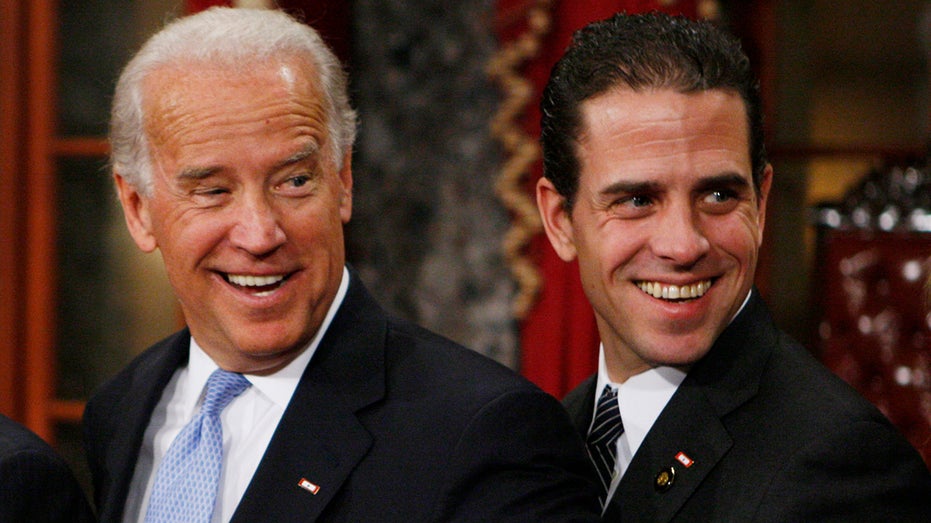The biggest Supreme Court decisions of 2024: From presidential immunity to overturning the Chevron doctrine
The U.S. Supreme Court issued several major decisions over the course of 2024.
Its rulings include those that have pushed back on the Biden administration's attempted change of Title IX protections for transgender students, reversed a 40-year precedent that had supported what conservatives have condemned as the administrative state in Washington, and considered the constitutionality of Republican-controlled state efforts to curtail what they define as liberal Silicon Valley biases online.
The high court also ruled on presidential immunity at a consequential time for current President-elect Trump during the 2024 election – and sided with a Jan. 6 defendant who fought a federal obstruction charge.
Here are the top cases considered by the justices over the past year.
The Supreme Court on Aug. 16, 2024, kept preliminary injunctions preventing the Biden-Harris administration from implementing a new rule that widened the definition of sex discrimination under Title IX to include sexual orientation and gender identity, while litigation over the rule continues.
After the Fifth and Sixth Circuit Courts of Appeal denied the administration's request to put a stay on the injunctions, the Department of Education turned to the Supreme Court, arguing that some parts of the rule should be able to take effect. The Supreme Court rejected their request.
"Importantly, all Members of the Court today accept that the plaintiffs were entitled to preliminary injunctive relief as to three provisions of the rule, including the central provision that newly defines sex discrimination to include discrimination on the basis of sexual orientation and gender identity," the court's unsigned opinion said, concluding that the Biden administration had not "adequately identified which particular provisions, if any, are sufficiently independent of the enjoined definitional provision and thus might be able to remain in effect."
In April, the Department of Education issued the new rule implementing Title IX of the Education Amendments of 1972, arguing that expanding the definition of discrimination to include "sexual orientation and gender identity" would protect LGBTQ students. Louisiana led several states in suing the DOE, contending the new rule "violates students' and employees' rights to bodily privacy and safety."
Title IX implemented the long-standing athletics regulation allowing sex-separate teams decades ago, and Republicans contended Biden’s new rule would have significant implications on women- and girls-only spaces and possibly legally back biological males playing in women’s sports. Separate court injunctions blocked the rule from taking effect in 26 states.
LIBERAL SUPREME COURT JUSTICE MAKES ‘CRINGE’ CAMEO PERFORMANCE ON BROADWAY
"I’m grateful that the Supreme Court agreed not to block our injunction against this radical rewrite of Title IX," Louisiana Attorney General Liz Murrill said in a statement at the time. "Other than the 19th Amendment guaranteeing our right to vote, Title IX has been the most successful law in history at ensuring equal opportunity for women in education at all levels and in collegiate athletics. This fight isn’t over, but I’ll keep fighting to block this radical agenda that eviscerates Title IX."
The Supreme Court on July 1, 2024, kept on hold efforts by Texas and Florida to limit how Facebook, TikTok, X, YouTube and other social media platforms regulate content in a ruling that strongly defended the platforms’ free speech rights.
Writing for the court, Justice Elena Kagan said the platforms, like newspapers, deserve protection from governments’ intrusion in determining what to include or exclude from their space. "The principle does not change because the curated compilation has gone from the physical to the virtual world," Kagan wrote in an opinion signed by five justices. All nine justices agreed on the overall outcome.
The justices returned the cases to lower courts for further review in broad challenges from trade associations for the companies.
While the details vary, both laws aimed to address long-standing conservative complaints that the social media companies were liberal-leaning and censored users based on their viewpoints, especially on the political right.
The Florida and Texas laws were signed by Republican governors in the months following decisions by Facebook and Twitter (now X) to cut then-President Trump off over his posts related to the Jan. 6, 2021, riot at the U.S. Capitol.
Trade associations representing the companies sued in federal court, claiming that the laws violated the platforms’ speech rights. One federal appeals court struck down Florida’s statute while another upheld the Texas law, but both were on hold pending the outcome at the Supreme Court.
In a statement made when he signed the Florida measure into law, Gov. Ron DeSantis said it would be "protection against the Silicon Valley elites."
When Gov. Greg Abbott signed the Texas law, he said it was needed to protect free speech in what he termed the new public square. Social media platforms "are a place for healthy public debate where information should be able to flow freely – but there is a dangerous movement by social media companies to silence conservative viewpoints and ideas," Abbott said. "That is wrong, and we will not allow it in Texas."
NetChoice LLC has sued Florida Attorney General Ashley Moody and Texas Attorney General Ken Paxton.
"The judgments are vacated, and the cases are remanded, because neither the Eleventh Circuit nor the Fifth Circuit conducted a proper analysis of the facial First Amendment challenges to Florida and Texas laws regulating large internet platforms. NetChoice's decision to litigate these cases as facial challenges comes at a cost," the court wrote. "The Court has made facial challenges hard to win. In the First Amendment context, a plaintiff must show that 'a substantial number of [the law's] applications are unconstitutional, judged in relation to the statute's plainly legitimate sweep.' So far in these cases, no one has paid much attention to that issue."
The court said its analysis and arguments "focused mainly on how the laws applied to the content-moderation practices that giant social-media platforms use on their best-known services to filter, alter or label their users' posts, i.e., on how the laws applied to the likes of Facebook's News Feed and YouTube's homepage," but the justices said they "did not address the full range of activities the laws cover, and measure the constitutional against the unconstitutional applications."
The Supreme Court on July 1, 2024, ruled that former presidents have substantial protection from prosecution, handing a major victory to Donald Trump, the former president who at the time was the presumptive Republican presidential nominee and is now president-elect.
Trump had moved to dismiss his indictment in a 2020 election interference case based on presidential immunity.
The court did not dismiss the case, but the ruling did ensure the 45th president would not face trial in the case before the November 2024 election.
In a 6-3 decision, the court sent the matter back down to a lower court, as the justices did not apply the ruling to whether or not Trump is immune from prosecution regarding actions related to efforts to overturn the results of the 2020 election.
"The President enjoys no immunity for his unofficial acts, and not everything the President does is official," Chief Justice John Roberts wrote for the majority. "The President is not above the law. But Congress may not criminalize the President’s conduct in carrying out the responsibilities of the Executive Branch under the Constitution. And the system of separated powers designed by the Framers has always demanded an energetic, independent Executive."
Trump, having won the 2024 presidential election, will take office Jan. 20, 2025.
SCOTUS HEARS ARGUMENTS IN CASE THAT COULD RESHAPE ENVIRONMENTAL LAW
In a 6-3 ruling, the Supreme Court on June 28, 2024, overruled the 1984 landmark decision in Chevron v. Natural Resources Defense Council.
Known as Chevron deference, the 40-year-old decision instructed lower courts to defer to federal agencies when laws passed by Congress were too ambiguous. It had been the basis for upholding thousands of regulations by dozens of federal agencies, but has long been a target of conservatives and business groups who argue that it grants too much power to the executive branch, or what some critics call the administrative state.
Roberts, writing for the court, said federal judges must now "exercise their independent judgment in deciding whether an agency has acted within its statutory authority."
The ruling does not call into question prior cases that relied on the Chevron doctrine, Roberts wrote.
The reversal makes it so executive branch agencies will likely have more difficulty regulating the environment, public health, workplace safety and other issues.
The case came about when Atlantic herring fishermen sued over federal rules requiring them to pay for independent observers to monitor their catch. The fishermen argued that the 1976 Magnuson-Stevens Fishery Conservation and Management Act did not authorize officials to create industry-funded monitoring requirements and that the National Marine Fisheries Service failed to follow proper rulemaking procedures.
In two related cases, the fishermen asked the court to overturn the 40-year-old Chevron doctrine, which stems from a unanimous Supreme Court case involving the energy giant in a dispute over the Clean Air Act. In that case, the court upheld an action by the Environmental Protection Agency under President Ronald Reagan.
In the decades following the ruling, Chevron has been a bedrock of modern administrative law, requiring judges to defer to agencies’ reasonable interpretations of congressional statutes.
The current Supreme Court, with a 6-3 conservative majority, has been increasingly skeptical of the powers of federal agencies. Justices Brett Kavanaugh, Clarence Thomas, Samuel Alito and Neil Gorsuch have questioned the Chevron decision. Ironically, it was Gorsuch’s mother, former EPA Administrator Anne Gorsuch, who made the decision that the Supreme Court upheld in 1984.
The Biden administration argued that overturning Chevron would be destabilizing and could bring a "convulsive shock" to the nation’s legal system.
The Supreme Court on June 28, 2024, ruled in favor of a participant in the Jan. 6, 2021, Capitol riot who challenged his conviction for a federal obstruction crime.
The case stemmed from a lawsuit filed by Joseph Fischer – a former police officer and one of more than 300 people charged by the Justice Department with "obstruction of an official proceeding" in the Jan. 6, 2021, riot at the Capitol. His lawyers argued that the federal statute should not apply, and that it had only ever been applied to evidence-tampering cases.
In a 6-3 decision, the Supreme Court held to a narrower interpretation of a federal statute that imposes criminal liability on anyone who corruptly "alters, destroys, mutilates, or conceals a record, document, or other object, or attempts to do so, with the intent to impair the object's integrity or availability for use in an official proceeding."
The ruling reversed a lower court decision, which the justices said swept too broadly into areas like peaceful but disruptive conduct, and returned the case to the D.C. Circuit Court of Appeals.
The Justice Department argued that Fischer’s actions were a "deliberate attempt" to stop a joint session of Congress directly from certifying the 2020 election, thus qualifying their use of the statute that criminalizes behavior that "otherwise obstructs, influences, or impedes any official proceeding, or attempts to do" and carries a penalty of up to 20 years in prison.
However, Roberts said the government stretched the law too far.
CLICK HERE TO GET THE FOX NEWS APP
"January 6 was an unprecedented attack on the cornerstone of our system of government – the peaceful transfer of power from one administration to the next. I am disappointed by today’s decision, which limits an important federal statute that the Department has sought to use to ensure that those most responsible for that attack face appropriate consequences," Attorney General Merrick Garland said in a statement reacting to the ruling.
"The vast majority of the more than 1,400 defendants charged for their illegal actions on January 6 will not be affected by this decision," he said.
Fox News’ Chris Pandolfo, Bill Mears, Shannon Bream, Brooke Singman, Brianna Herlihy and The Associated Press contributed to this report.






